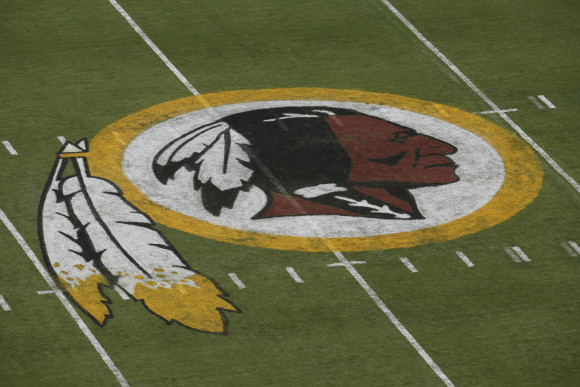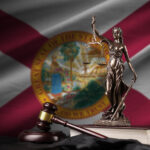The National Football League’s Washington Redskins lost some protection for its controversial name after a federal judge ruled it may be disparaging to Native Americans.
The decision doesn’t bar the team’s commercial use of the trademarked name, but it opens the door to copycats seeking to profit from it. The Redskins won’t be able to add the name to a federal registry, which provides additional protection from such infringement.
Redskins President Bruce Allen said the team will appeal the ruling.
“We are convinced that we will win because the facts and the law are on the side of our franchise that has proudly used the name Washington Redskins for more than 80 years,” Allen said in a statement.
The ruling in the two decade-long dispute leaves intact a 2014 decision by the U.S. Patent and Trademark Office to cancel six trademarks. The Redskins sued, arguing its free speech rights were infringed.
U.S. District Judge Gerald Bruce Lee disagreed, saying trademark registration is “government speech and is therefore exempt from First Amendment scrutiny.”
While the Redskins’ appeal will go the U.S. Court of Appeals in Richmond, Virginia, another federal appeals court is set to hear arguments in a separate case on the central issue of whether free speech trumps a legislative ban on disparaging trademarks.
The Slants
The U.S. Court of Appeals for the Federal Circuit said all its active judges in October will consider the case of The Slants, an Asian-American rock band that’s been trying to trademark its moniker, which is also a derogatory term sometimes used for Asian people.
The cases involving the Slants and the Redskins have sparked a debate within the field of trademark law. Trademark registration is designed to give added legal protection to unique names that consumers will recognize and prevent copycats. The Patent Office is required to weed out names that it deems offensive to ethnic or religious groups or the general public.
The rules have led the agency to reject applications for the name of a rooster-shaped lollipop for having a “vulgar meaning” and “Stop the Islamisation of America” by activist Pamela Geller because it may disparage religious practitioners.
Lee agreed in his ruling that trademarks that may disparage different groups can be canceled. The determination is made considering the dictionary definitions of the mark in dispute, statements of individuals or group leaders and literary or media references, he said.
Offensive Term
“The record evidence shows that the term ‘redskin’ in the context of Native Americans and during the relevant time period, was offensive,” Lee wrote.
The football team, Lee said, has “always associated itself with Native American imagery” including the use of a Native American profile on its helmets.
The team, founded in 1932 as the Boston Braves, was renamed in 1933 as the Boston Redskins in honor of its head coach, an American Indian. The team moved to Washington in 1937. In 2013, the Redskins ranked 10th in merchandise sales of the National Football League’s 32 teams. Merchandise revenue is shared equally among NFL squads.
Redskins’ lawyer Robert Raskopf said the team’s ability to use its famous name and enforce its trademark rights will “remain unaffected as has been consistently been the case throughout the 23-year history of this litigation.”
“The Redskins will continue to use their longstanding marks as symbols of pride, achievement, and success both on the field and off,” Raskopf said.
The case is Pro-Football Inc. v. Blackhorse, 14-cv-01043, U.S. District Court, Eastern District of Virginia (Alexandria).
–With assistance from Steven Church in Wilmington, Delaware and Susan Decker in Washington.
Topics USA Washington
Was this article valuable?
Here are more articles you may enjoy.



 Jury Awards $80M to 3 Former Zurich NA Employees for Wrongful Termination
Jury Awards $80M to 3 Former Zurich NA Employees for Wrongful Termination  Here’s Why Experts Don’t Think Cloud Seeding Caused Dubai Flooding
Here’s Why Experts Don’t Think Cloud Seeding Caused Dubai Flooding  Fla. Regulators’ Effort to Remove Insurer Execs May Not Pass Constitutional Muster
Fla. Regulators’ Effort to Remove Insurer Execs May Not Pass Constitutional Muster  Aon Completes $13B Acquisition of Middle-Market Broker NFP
Aon Completes $13B Acquisition of Middle-Market Broker NFP 

